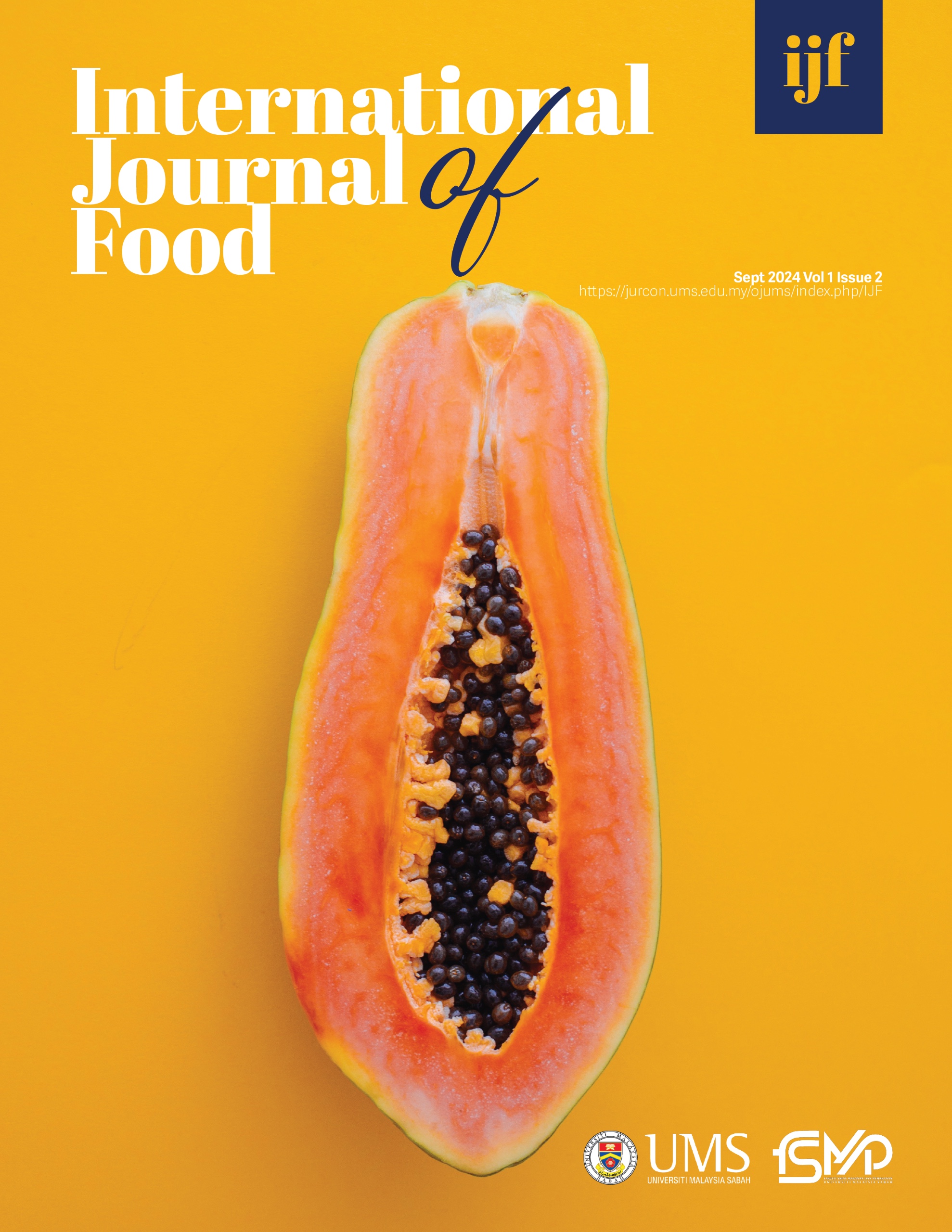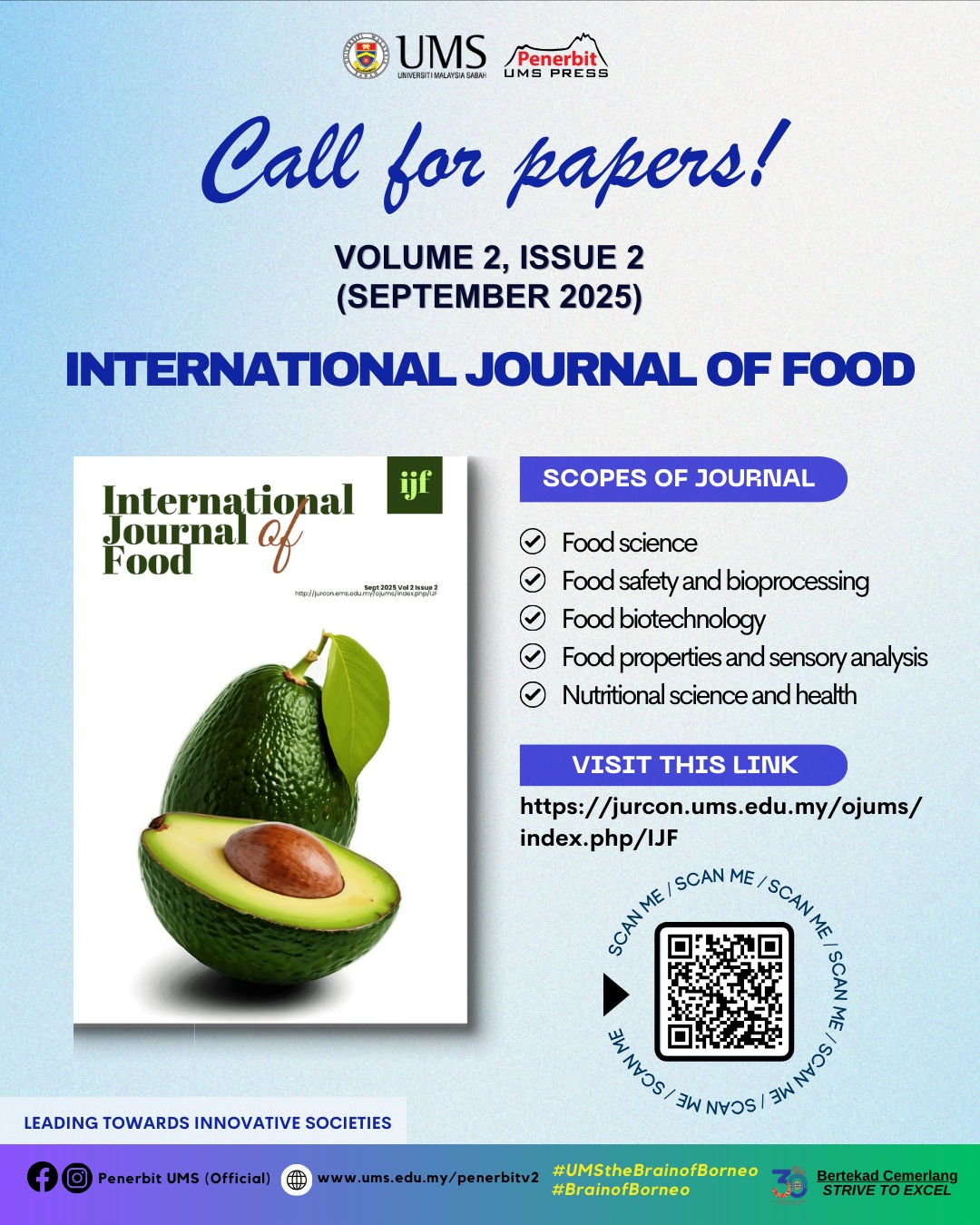Knowledge, Attitudes, and Practices on Halal Certification Management for Small and Medium Food Entrepreneurs in Kota Kinabalu, Sabah
DOI:
https://doi.org/10.51200/ijf.v1i2.5132Keywords:
good manufacturing, haram, hygiene practice, islamic, toyyibanAbstract
This study on knowledge, attitudes, and practices of Halal Certification management was conducted to examine the level of knowledge about halal certification management among Small and Medium Enterprises (SME) in Kota Kinabalu, Sabah. In addition, it was also conducted to study the attitudes and practices performed by food entrepreneurs. This study employed a questionnaire consisting of four sections. Section A, B, C, and D consists of six to nine questions related to demographic information, knowledge, attitudes, and practices, respectively. A total of 384 respondents were involved in this study. Data analysis included frequency distribution, Chi-square test and Spearman’s correlation to investigate the relationship between the factors. Based on study results, most respondents had high level of knowledge about Halal certification management. A total of 267 (69.6%) respondents had a score of more than 50%, and 117 (30.5%) respondents had a score of less than 50% for level of knowledge. Based on Chi-square values, all demographic factors (gender, age, religion, races, company type, total monthly earnings) showed significant association with knowledge levels. Meanwhile, based on Spearman’s correlation, a very weak negative relationship was found between knowledge and attitude (r=-0.103, p=0.043), whereas no significant relationship was found between knowledge and practice (r=0.048, p=0.344) of respondents regarding halal certification management. Based on the findings, to maximise benefits from Halal certification, entrepreneurs should focus on implementing effective practices rather than merely acquiring knowledge. This can lead to increased market access, business growth, and economic prosperity.










